
Every young person has to make life-changing decisions about their sexual and reproductive health. However many of them cannot access clear, evidence-based information. IPPF's comprehensive sexuality education programmes enable young people to make informed decisions about their sexuality and health, while building life skills and promoting gender equality.
Articles by Comprehensive Sex Education
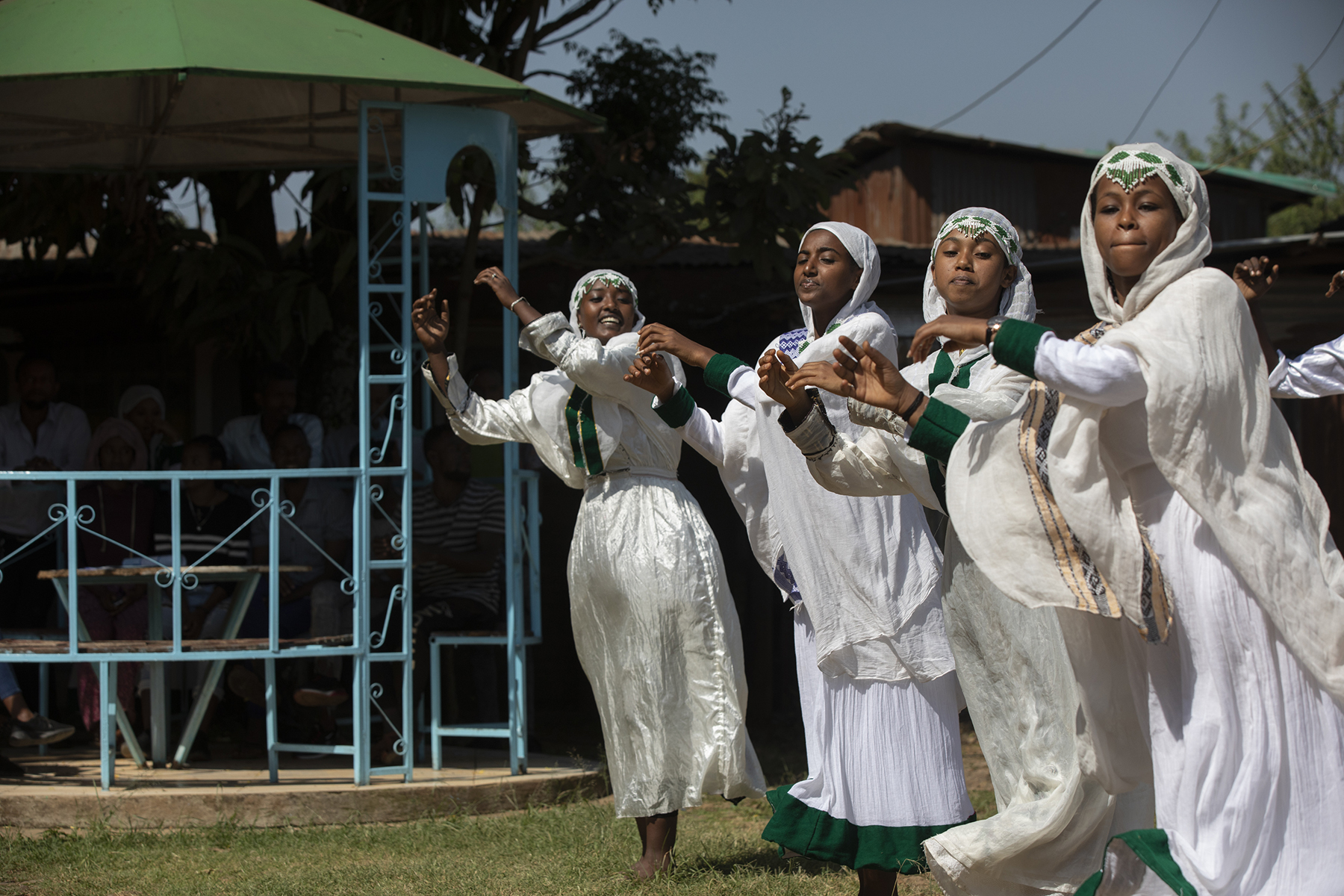
Youth-led sexual healthcare through dance, song, and poetry
In Ethiopia, getting young people’s attention about sexual and reproductive healthcare is no easy task. But at a youth centre in Jimma, the capital Oromia region, groups of young people are getting vital messages about sexual health and contraception out to their peers through dance, song, and poetry. Student Jumeya Mohammed Amin came here to train as a peer educator for sexual and reproductive health [SRH] three years ago, when she was 14 years old. In her community – a conservative village 20 km outside the city – early marriage and pregnancy was common, and information about SRH practically unheard of. Navigating traditional norms “Girls younger than me at the time were married. The youngest was only nine,” said Amin, who would watch her classmates have to leave their home, school, and playmates behind. In Amin’s community, to opt out of unintended pregnancies involves unsafe abortion methods such as remedies prescribed by traditional healers – which can be fatal. “I know one girl from 10th grade who was 15 years old, and she died from this in 2017,” she said. But Amin’s work educating hundreds of young people each year on sexual health has changed attitudes in her community around early marriage, unplanned pregnancy and the options available to prevent it, she says, with many of her peers now waiting to start becoming sexually active. Tackling high rates of teen pregnancy Oromia has the third highest rate of teenage pregnancy in Ethiopia, after the Afar and Somali regions, says Dessalegn Workineh, who runs the Jimma office of the Family Guidance Association of Ethiopia [FGAE], which is supported by IPPF. “In Oromia, out of this rate of teen pregnancies, almost twenty percent end up in abortion,” he said. The region also has the third lowest uptake of contraceptives among women aged 15 to 49. 17-year-old peer educator Mastewal Ephrem says that the problem comes down to a lack of information. “People don’t know about reproductive health and they need this information about how to manage their family, sex and infections,” she said. Religious and social conservatism make this difficult, especially in poor and rural areas where families receive dowries in the form of money and gifts when their daughters marry. “Because of not having confidence and not talking to people, girls are doing early marriage,” said Ephrem. Poverty and other hardships also push girls out of their family homes early and leave them in precarious situations, where they run a high risk of encountering abuse. “I see girls aged 10, 13 and 15, who live on the streets and take drugs,” said Emebet Bekele, a counsellor working at an IPPF-supported clinic in Jimma that is aimed at helping sex workers. Bekele provides counselling and testing for HIV and STIs. She talks to girls and women about the full range of free and confidential family planning services available at the clinic. “Sometimes we bring them from the streets and we test them. Most of them get pregnant,” she said. She often supports students to get safe abortion care; including girls as young as 13. Taking sexual healthcare to the streets The youth centre reaches a lot of young people in schools and directs them towards the youth centre, where there is a library and many group activities and performances to teach them about SRH. Groups of young people practice and perform short plays and dances about topics such as unsafe sex and STIs here, as well as on the streets, where they draw a crowd. Fourteen-year-old Simret Abiyu has turned what she has learned into SRH-themed poems that she pens and performs to her peers in English, Amharic and Oromo. “Sometimes I get training here and write poems about family planning and the work of FGAE and the development of the country,” she said. Healthcare and advice via the phone University student Nebiyu Ephirem, 26, is a youth leader at the centre. He has been managing the two SRH helplines – located in a quiet back office – since it started in 2017. He answers a lot of calls from young people asking about contraception or their bodies and people dealing with emergencies and tries to answer their questions or refer them to public, private or FGAE clinics across the country. “Culturally, people used not to want to discuss sexual issues. They fear discussing these openly with family, and due to religious beliefs, so people like to call me,” said Ephirem. The youth centre reaches more than 11,000 young people a year through its work at schools, and through outreach clinics located in coffee plantations, where many young people work. Currently, the youth centre uses the helpline, radio adverts and social media to inform people about sexual health. The team hopes that media campaigns can spread the message wider in order to raise awareness about young peoples’ sexual health needs.
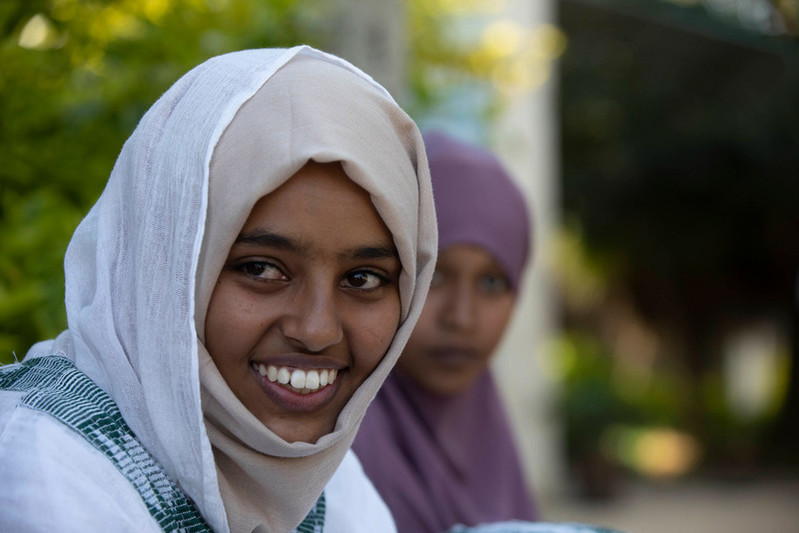
"I wanted to protect girls from violence – like early marriage – and I wanted to change people’s wrong perceptions about sex and sexuality"
Seventeen-year-old student Jumeya Mohammed Amin started educating other people about sexual and reproductive health when she was 14 years old. She trained as a ‘change agent’ for her community through the Family Guidance Association of Ethiopia’s south west office in Jimma, the capital of Oromia region. Amin comes from a small, conservative town about 20km outside the city. "I wanted to protect girls from violence – like early marriage – and I wanted to change people’s wrong perceptions about sex and sexuality, because they [men in her community] start having sex with girls at a young age, even with girls as young as nine years old, because of a lack of education." "They suddenly had to act like grown-up women" "Before I started this training I saw the majority of students having sex early and getting pregnant because of a lack of information, and they would have to leave home and school. Boys would be disciplined and if they were seen doing things on campus, expelled. Girls younger than me at the time were married. The youngest was only nine. They would have to go back home and could not play anymore or go to school. They suddenly had to act like grown-up women, like old ladies. They never go back to school after marriage. My teacher chose me for this training and told me about the programme. I like the truth so I was not afraid. I heard about a lot of problems out there during my training and I told myself I had to be strong and go and fight this." "I have a brother and four sisters and I practiced my training on my family first. They were so shocked by what I was saying they were silent. Even on the second day, they said nothing. On the third day, I told them I was going to teach people in schools this, so I asked them why they had stayed silent. They told me that because of cultural and religious issues, people would not accept these ideas and stories, but they gave me permission to go and do it. Because of my efforts, people in my school have not started having sex early and the girls get free sanitary pads through the clubs so they no longer need to stay home during periods." Training hundreds of her peers "I know people in my community who have unplanned pregnancies consult traditional healers [for abortions] and take drugs and they suffer. I know one girl from 10th grade who was 15 years old and died from this in 2017. The healers sometimes use tree leaves in their concoctions. We tell them where they can go and get different [safe abortion] services. The first round of trainings I did was with 400 students over four months and eight sessions in 2017. Last year, I trained 600 people and this year in the first trimester of school I trained 400. When students finish the course, they want to do it again, and when we forget we have a session, they come and remind me. At school, they call me a teacher. I’d like to be a doctor and this training has really made me want to do that more."
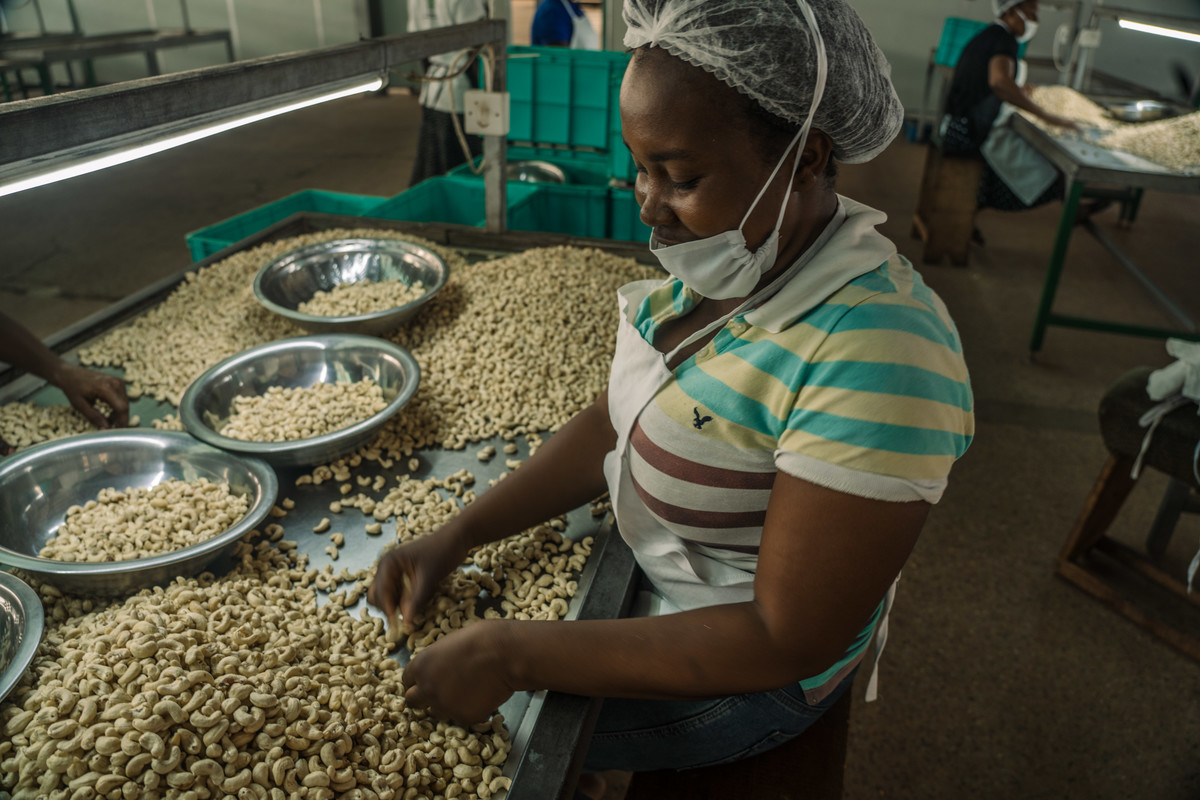
Ghana: Expanding healthcare for young people and factory workers
Mother of six Elizabeth Adom rides a staff bus up a long, dusty dirt road, through towering pine trees, past wooden bungalows and the outward stretch of the canopy of cashew trees, to reach the cashew factory she works at in a small town in rural Ghana. Adom never planned to have six children but struggled to access the right contraception. So when Planned Parenthood Association Ghana (PPAG) along with the Danish Family Planning Association (DFPA) in 2018 began rolling out a project at the factory and in the Mim township to help women like her take control of their reproductive health, she was pleased. Both PPAG and DFPA are focused on providing sexual and reproductive health and rights (SRHR) information and service, especially for women and girls. "I am now currently accessing family planning. It is helping me. I don't want to give birth again," Adom emphatically says, while taking a break from peeling cashews at the factory. As a former-teen mother herself, she also shares what she has learnt with her children. "[There] is the danger associated with early childbirth, your life becomes difficult, and you encounter so many challenges in your life." Helping young people The project also targets young people in Mim, which has a population of about 30,000. Traditionally Mim was known for its timber industry, but in recent years factories have collapsed or had to undergo mass layoffs to survive, leaving many in economic hardship. Before rolling out the project, PPAG research of young people in Mim found almost 80 per cent had very low knowledge on SRHR, despite the majority of them having had sex - of those condom use was low, as was seeking STI treatments. Beliefs about rights to access information and services around reproductive healthcare were also low. They were also uncomfortable discussing SRHR with their parents, preferring to speak to their peers. A meaningful way to get SRHR information both to young people and the factory workers is through peer educators. Adom often meets with a colleague who has received specialised training from PPAG to educate others on SRHR. Abena Amoah, executive director of PPAG, says in Ghana, education on sexual and reproduction health rights is generally becoming more accepted but a lot more work needs to be done. "Traditionally, it's not said in the open," she says. "A lot of people still do not subscribe to providing the information openly on sexual and reproductive health and even providing services." The four-year project in Mim is supported by private funding. Health facility staff throughout Mim have been trained in youth-friendly services, to make it easier and quicker to get help and information rather than facing what can be bureaucratic processes in the healthcare system in Ghana. Patients can access comprehensive abortion care, a range of different contraception options and STI treatments. The project also works with ten schools where clubs have been formed to discuss SRHR. The project is also gearing up to offer livelihood training so young people can be economically independent, by placing young people from Mim in long-term apprenticeships or offering skills training so they can set up their own businesses. Discussing sexual health openly Abdul-Mumin Abukari, the PPAG DFPA Mim project officer says so far, they have seen several positive changes, including creating an environment where SRHR can be discussed openly in the community. He also finds people now realise the need for the services. "There were a lot of teenage pregnancies, there were a lot of sexually transmitted diseases, there were a lot of challenges in this community, but someway, somehow people felt that it was normal. They had accepted the situation, and they were living with it. So, the project has come to create some kind of awareness on these issues - that there's nothing normal about 13-year-olds and 14-year-olds getting pregnant." Supporting workers At Mim Cashew, workers like Adom steam, shell, sort, peel and package the organic cashews for export. The factory has colourful PPAG posters displayed on the walls throughout. Factory manager Matthew Porter says so far, the project has increased sensitisation amongst the workers to protect themselves and plan their lives. "People can look after themselves better and their children," he says. Jemima Akusika Hansen, HR manager at Mim Cashew, says focusing on employees' health also helps the factory. "We think that if that is done, it will reduce absenteeism, then some of the unintended pregnancies and then STIs will be reduced." Workers also feel more comfortable in speaking about going for birth control measures at the clinics. "Now they know pregnancy is a choice. So they plan when they want to have it and when they don't want to."
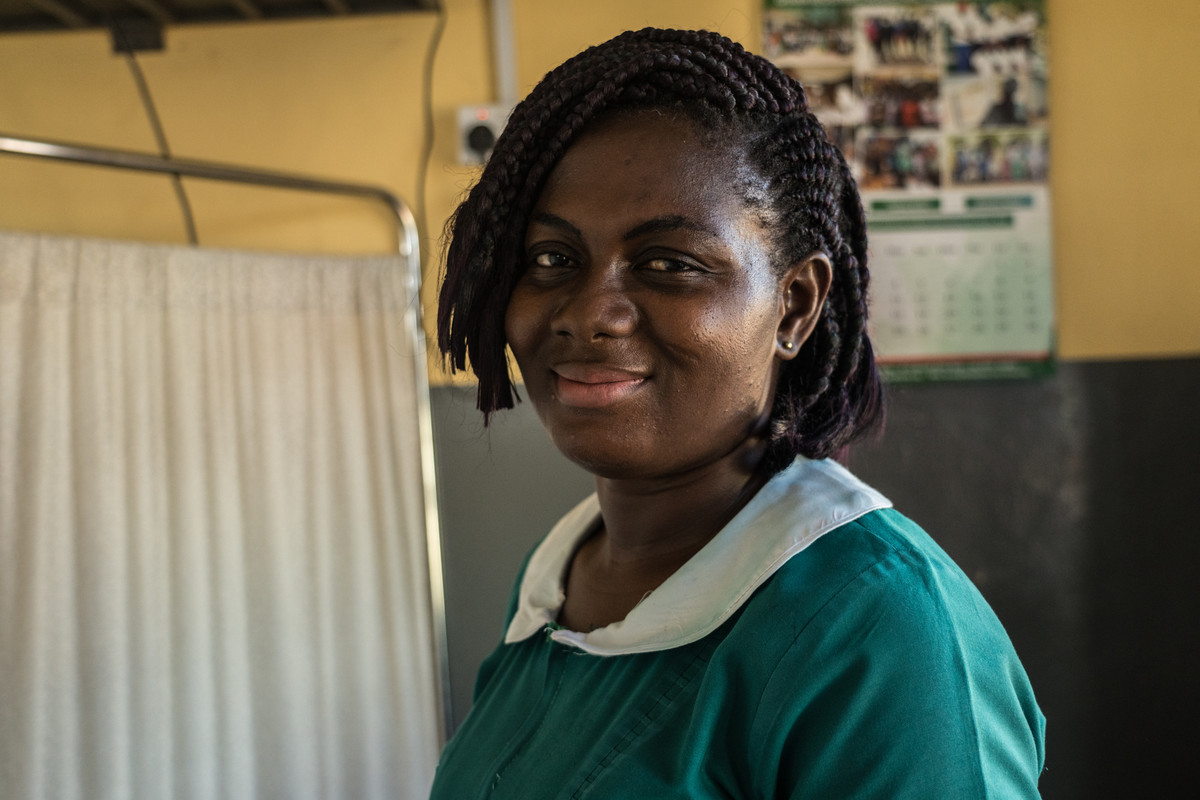
“Teenage pregnancies will decrease, unsafe abortions and deaths as a result of unsafe abortions will decrease"
Midwife Sophia Abrafi sits at her desk, sorting her paperwork before another patient comes in looking for family planning services. The 40-year-old midwife welcomes each patient with a warm smile and when she talks, her passion for her work is clear. At the Mim Health Centre, which is located in the Ahafo Region of Ghana, Abrafi says a sexual and reproductive health and right (SRHR) project through Planned Parenthood Association of Ghana (PPAG) and the Danish Family Planning Association (DFPA) allows her to offer comprehensive SRH services to those in the community, especially young people. Before the project, launched in 2018, she used to have to refer people to a town about 20 minutes away for comprehensive abortion care. She had also seen many women coming in for post abortion care service after trying to self-administer an abortion. “It was causing a lot of harm in this community...those cases were a lot, they will get pregnant, and they themselves will try to abort.” Providing care & services to young people Through the clinic, she speaks to young people about their sexual and reproductive health and rights. “Those who can’t [abstain] we offer them family planning services, so at least they can complete their schooling.” Offering these services is crucial in Mim, she says, because often young people are not aware of sexual and reproductive health risks. “Some of them will even get pregnant in the first attempt, so at least explaining to the person what it is, what she should do, or what she should expect in that stage -is very helpful.” She has already seen progress. “The young ones are coming. If the first one will come and you provide the service, she will go and inform the friends, and the friends will come.” Hairdresser Jennifer Osei, who is waiting to see Abrafi, is a testament to this. She did not learn about family planning at school. After a friend told her about the clinic, she has begun relying on staff like Abrafi to educate her. “I have come to take a family planning injection, it is my first time taking the injection. I have given birth to one child, and I don’t want to have many children now,” she says. Expanding services in Mim The SRHR project is working in three other clinics or health centres in Mim, including at the Ahmadiyya Muslim Hospital. When midwife Sherifa, 28, heard about the SRHR project coming to Mim, she knew it would help her hospital better help the community. The hospital was only offering care for pregnancy complications and did little family planning work. Now, it is supplied with a range of family planning commodities, and the ability to do comprehensive abortion care, as well as education on SRHR. Being able to offer these services especially helps school girls to prevent unintended pregnancies and to continue at school, she says. Sherifa also already sees success from this project, with young people now coming in for services, education and treatment of STIs. In the long term, she predicts many positive changes. “STI infection rates will decrease, teenage pregnancies will decrease, unsafe abortions and deaths as a result of unsafe abortions will decrease. The young people will now have more information about their sexual life in this community, as a result of the project.”
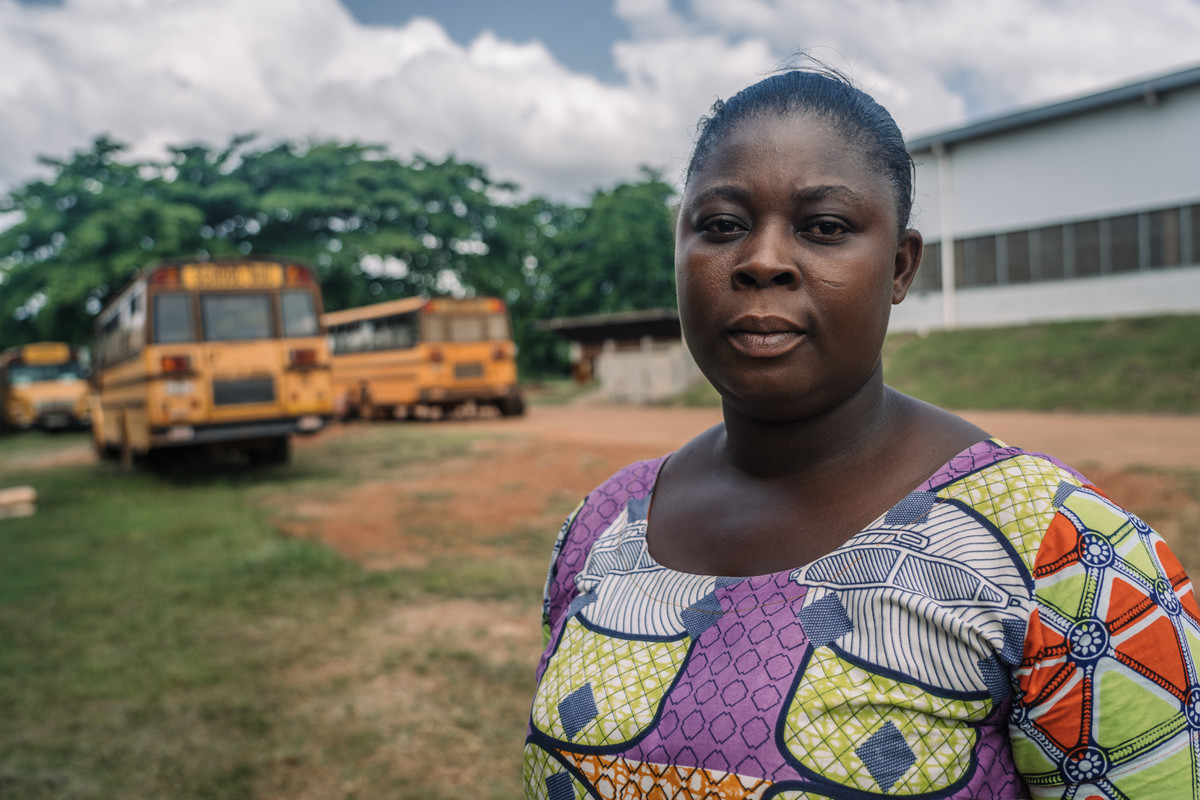
"It has helped me a lot, without that information I would have given birth to many children..."
Factory workers at Mim Cashew, in a small town in rural Ghana, are taking their reproductive health choices into their own hands, thanks to a four-year project rolled out by Planned Parenthood Association Ghana (PPAG) along with the Danish Family Planning Association (DFPA). The project, supported by private funding, focuses on factory workers as well as residents in the township of about 30, 000, where the factory is located. Under the project, health clinic staff in Mim have been supported to provide comprehensive abortion care, a range of different contraception choices and STI treatments as well as information and education. In both the community and the factory, there is a strong focus on SRHR trained peer educators delivering information to their colleagues and peers. An increase in knowledge So far, the project has yielded positive results - especially a notable increase amongst the workers on SRHR knowledge and access to services - like worker Janet Pinamang, who is a 32-year-old mother of two. She says the SRHR project has been great for her and her colleagues. "I have had a lot of benefits with the project from PPAG. PPAG has educated us on how the process is involved in a lady becoming pregnant. PPAG has also helped us to understand more on drug abuse and about HIV.” She also appreciated the project working in the wider community and helping to address high levels of teenage pregnancy. "I have seen a lot of change before the coming of PPAG little was known about HIV, and its impacts and how it was contracted - now PPAG has made us know how HIV is spread, how it is gotten and all that. PPAG has also got us to know the benefits of spacing our children." “It has helped me a lot” Pinamang's colleague, Sandra Opoku Agyemang, 27, is a mother of a six-year-old girl called Bridget. Agyemang says before the project came to Mim, she had only heard negative information around family planning. "I heard family planning leads to dizziness, it could lead to fatigue, you won't get a regular flow of menses and all that, and I also heard problems with heart attacks. I had heard of these problems, and I was afraid, so after the coming of PPAG, I went into family planning, and I realised all the things people talked about were not wholly true." Now using family planning herself, she says the future is bright for her, and her family. "It has helped me a lot, without that information I would have given birth to many children, not only Bridget. In the future, I plan to add on two [more children], even with the two I am going to plan."
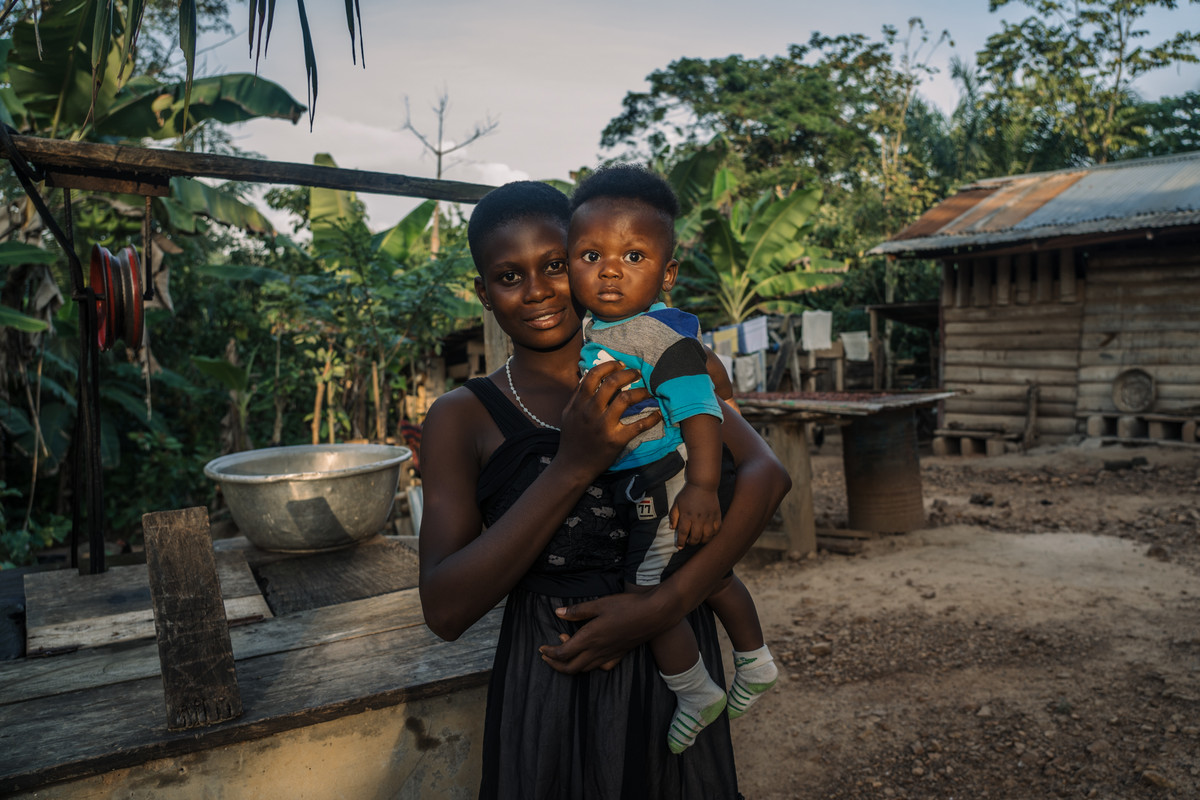
“Despite all those challenges, I thought it was necessary to stay in school"
When Gifty Anning Agyei was pregnant, her classmates teased her, telling her she should drop out of school. She thought of having an abortion, and at times she says she considered suicide. When her father, Ebenezer Anning Agyei found out about the pregnancy, he was furious and wanted to kick her out of the house and stop supporting her education. Getting the support she needed But with support from Planned Parenthood Association of Ghana (PPAG) and advice from Ebenezer’s church pastor, Gifty is still in school, and she has a happy baby boy, named after Gifty’s father. Gifty and the baby are living at home, with Gifty’s parents and three of her siblings in Mim, a small town about eight hours drive northwest of Ghana’s capital Accra. “Despite all those challenges, I thought it was necessary to stay in school. I didn’t want any pregnancy to truncate my future,” Gifty says, while her parents nod in proud support. In this area of Ghana, research conducted in 2018 found young people like Gifty had high sexual and reproduce health and rights (SRHR) challenges, with low comprehensive knowledge of SHRH and concerns about high levels of teenage pregnancy. PPAG, along with the Danish Family Planning Association (DFPA), launched a four-year project in Mim in 2018 aimed to address these issues. For Gifty, now 17, and her family, this meant support from PPAG, especially from the coordinator of the project in Mim, Abdul- Mumin Abukari. “I met Abdul when I was pregnant. He was very supportive and encouraged me so much even during antenatals he was with me. Through Abdul, PPAG encouraged me so much.” Her mother, Alice, says with support from PPAG her daughter did not have what might have been an unsafe abortion. The parents are also happy that the PPAG project is educating other young people on SRHR and ensuring they have access to services in Mim. Gifty says teenage pregnancy is common in Mim and is glad PPAG is trying to curb the high rates or support those who do give birth to continue their schooling. “It’s not the end of the road” “PPAG’s assistance is critical. There are so many ladies who when they get into the situation of early pregnancy that is the end of the road, but PPAG has made us know it is only a challenge but not the end of the road.” Gifty’s mum Alice says they see baby Ebenezer as one of their children, who they are raising, for now, so GIfty can continue with her schooling. “In the future, she will take on the responsibly more. Now the work is heavy, that is why we have taken it upon ourselves. In the future, when Gifty is well-employed that responsibility is going to be handed over to her, we will be only playing a supporting role.” Alice also says people in the community have commented on their dedication. “When we are out, people praise us for encouraging our daughter and drawing her closer to us and putting her back to school.” Dad Ebenezer smiles as he looks over at his grandson. “We are very happy now.” When she’s not at school or home with the baby, Gifty is doing an apprenticeship, learning to sew to follow her dream of becoming a fashion designer. For her, despite giving birth so young, she has her sights set on finishing her high school education in 2021 and then heading to higher education.
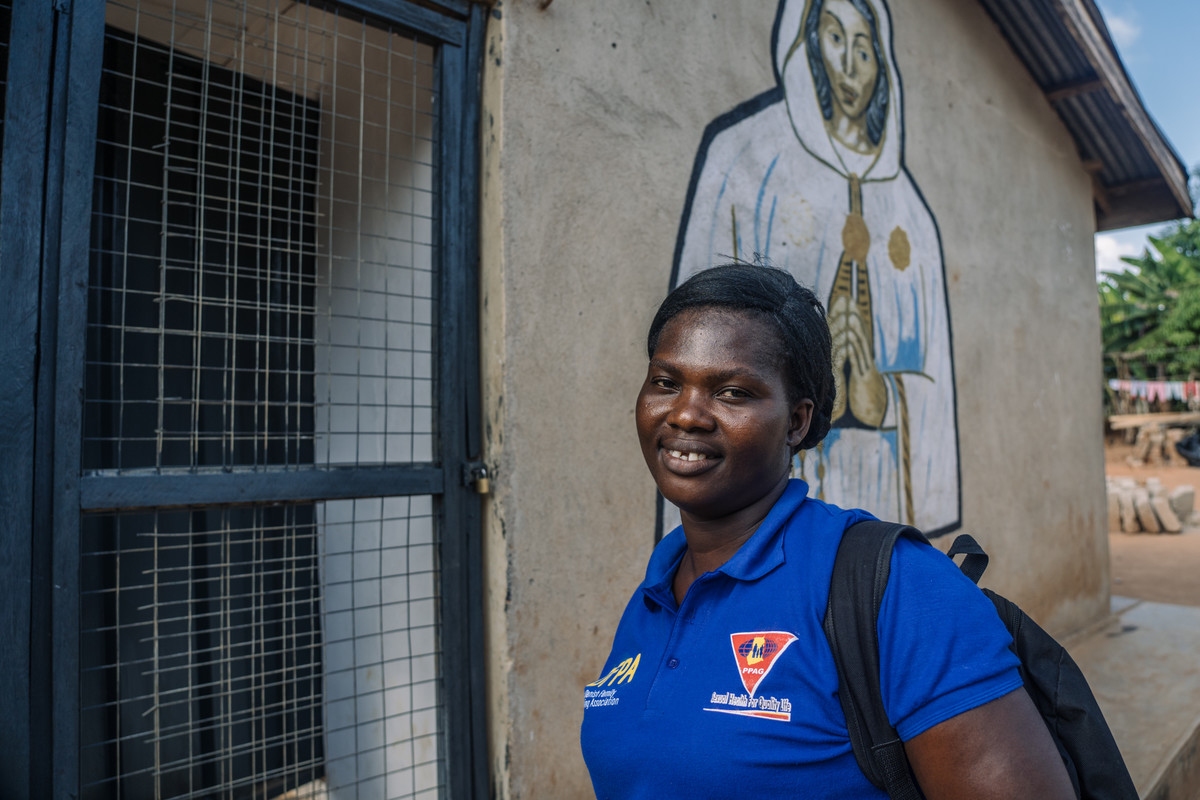
"They teach us as to how to avoid STDs and how to space our childbirth"
As the sun rises each morning, Dorcas Amakyewaa leaves her home she shares with her five children and mother and heads to work at a cashew factory. The factory is on the outskirts of Mim, a town in the Ahafo Region of Ghana. Along the streets of the township, people sell secondhand shoes and clothing or provisions from small, colourfully painted wooden shacks. “There are so many problems in town, notable among them [young people], teenage pregnancies and drug abuse,” Amakyewaa says, reflecting on the community of about 30,000 in Ghana. The chance to make a difference In 2018, Amakyewaa was offered a way to help address these issues in Mim, through a sexual and reproductive health rights (SRHR) project brought to both the cashew factory and the surrounding community, through the Danish Family Planning Association, and Planned Parenthood Association Ghana (PPAG). Before the project implementation, some staff at the factory were interviewed and surveyed. Findings revealed similar concerns Amakyewaa had, along with the need for comprehensive education, access and information on the right to key SRHR services. The research also found a preference for receiving SRHR information through friends, colleagues or factory health outreach. These findings then led to PPAG training people in the factory to become SRHR peer educators, including Amakyewaa. She now passes on what she has learnt in her training to her colleagues in sessions, where they discuss different SRHR topics. “I guide them to space their births, and I also guide them on the effects of drug abuse.” The project has also increased access to hospitals, she adds. “The people I teach, I have given the numbers of some nurses to them. So that whenever they need the services of the nurses, they call them and meet them straight away.” Access to information One of the women Amakyewaa meets with to discuss sexual and reproductive health is Monica Asare, a mother of two. “I have had a lot of benefits from PPAG. They teach us as to how to avoid STDs and how to space our childbirth. I teach my child about what we are learning. I never had access to this information; it would have helped me a lot, probably I would have been in school.” Amakyewaa also says she didn’t have access to information and services when she was young. If she had, she says she would not have had a child at 17. She takes the information she has learnt, to share with her children and other young people in the community. When she gets home after work, Amakyewaa’s peer education does not stop, she continues. She also continues her teachings when she gets home. “PPAG’s project has been very helpful to me as a mother. When I go home, previously I was not communicating with my children with issues relating to reproduction.” Her 19-year-old daughter, Stella Akrasi, has also benefitted from her mothers training. “I see it to be good. I always share with my friends give them the importance of family planning. If she teaches me something I will have to go and tell them too” she says.
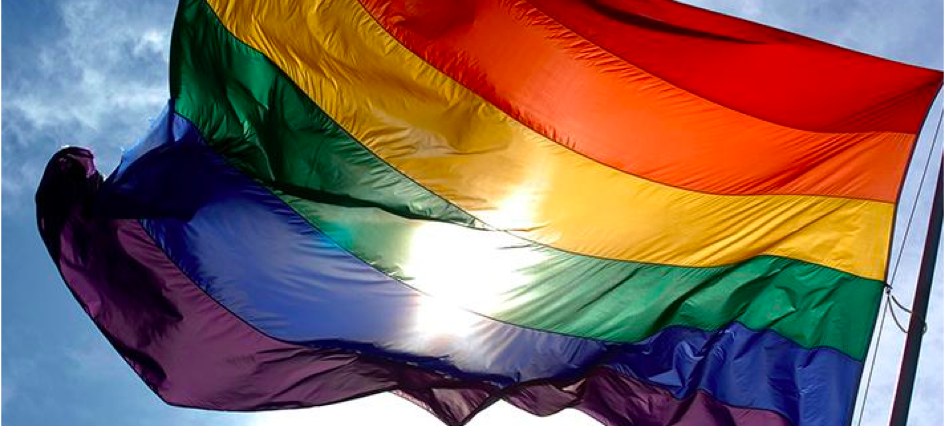
IPPF's new project sets to change discriminatory laws related to sexual orientation, gender identity and expression in 12 countries
IPPF arranged the first meeting of the project group that is tasked to develop IPPF policy and advocacy work on SOGIE issues in Nairobi in November 2019. IPPF has chosen 12 member associations (MAs), two from each IPPF region, for this important work. Participants shared their countries’ political situation and discussed possibilities and strategies for changing restrictive laws and regulations. The participants feedback expressed that they were inspired by the range of advocacy experiences and ideas, the creative solutions to reformulate challenges to opportunities and the wins already achieved. The world has recently seen improvements in SOGIE rights but still around 70 out of 190 countries have criminalizing legislations. Processes of decriminalization using the judicial system was a main discussion. Participants from MAs in India, Botswana and Trinidad and Tobago described how this had been a successful strategy in their countries and what the role of a non LGBTI health and human rights organisation could be. Examples were shared on how to cooperate with LGBTI organisations, including hosting and help initiate them in their formative stages. Some of our member organisations described the success of building and strengthening partner networks over time to enable the building of skills and confidence. The participants also spent time discussing how to ensure institutional strengthening of their organisations ensuring the SOGIE knowledge and competence when carrying out advocacy. Making use of interns and ensuring this competence in the governing boards were among examples given. International human rights mechanisms like the Universal Periodic Review are advocacy opportunities where the organisations are participating through writing shadow reports and reporting the situation on the ground. In addition, there were presentations of how to address public opinion (this film from Romania can be used as an example) and raise awareness of changes that are needed, as well as how to build movements and the importance for collecting evidence and data. All these efforts require funding, thus the participants made advocacy plans that can be used when applying for support. The advocacy plans were made according to the IPPF strategies and the participants discussed how to make use of the IPPF tools. At the end the participants watched the upcoming documentary The Art of Sin about the first gay man from Sudan to come out, by Ibrahim Mursal (co-produced by Sex og Politikk, IPPF’s MA in Norway). The film follows the artist Ahmed Umar as he comes out and explores his identity both in Sudan (where death penalty can be imposed on men who have sex with men) and Norway. List of participants: The participants came from 12 IPPF member associations (MAs), two from each of the 6 IPPF regions in the world: Tunisia (ATSR), Morocco (AMPF), Botswana (BFWA), Kenya (FHOK), India (FPAI), Sri Lanka (FPASL), Nord-Macedonia (HERA), Romania (SECS), Cambodia (RHAC), Indonesia (PKBI), Guyana (GRPA) and Trinidad and Tobago (FPATT) as well as the steering group and the secretariat. The IPPF Steering Committee has one representative from each of IPPF 6 regions: Africa, Arab World, Europe, South East Asia and Oceania, South Asia and Western Hemisphere. The secretariat of the project is based at IPPF Norway (Sex og Politikk).
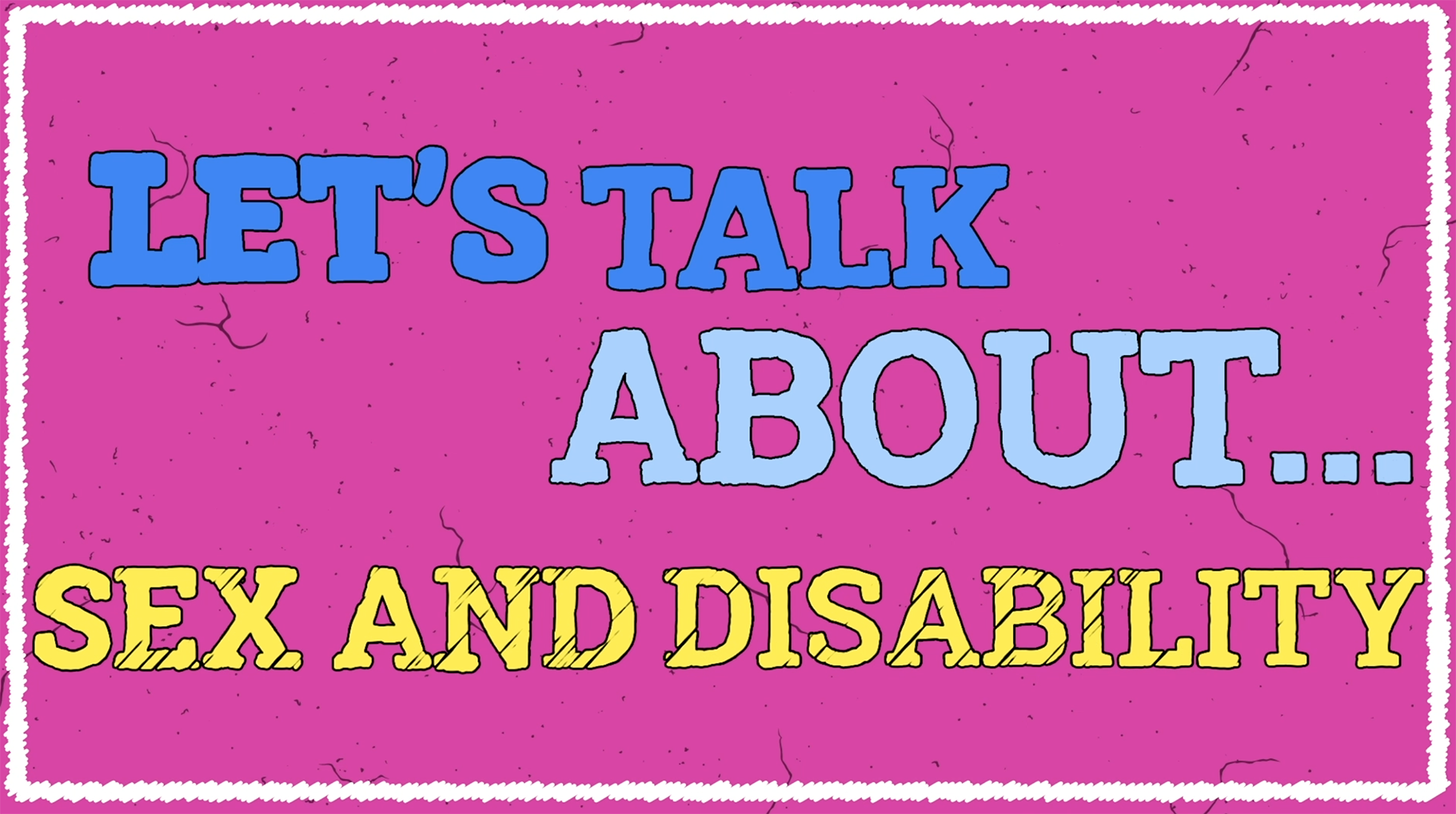
Watch: Let's Talk About... Sex & Disability
"Disabled people are sexy" "If you’re blind, how do you have sex? And I’m thinking, what kind of sex are you having?" Our new series tackles five major topics: Sex & Disability, Sex & Pleasure, Sex & Consent, Sex Education and Sex & Social Media. In this episode, Joy and Rachelle talk about their own experiences of living with a disability and some of the stigma and stereotypes they face when it comes to sex. They also have a few handy tips (hint more people should have sex with people living with a disability) on how to incorporate your disability into your sex life!
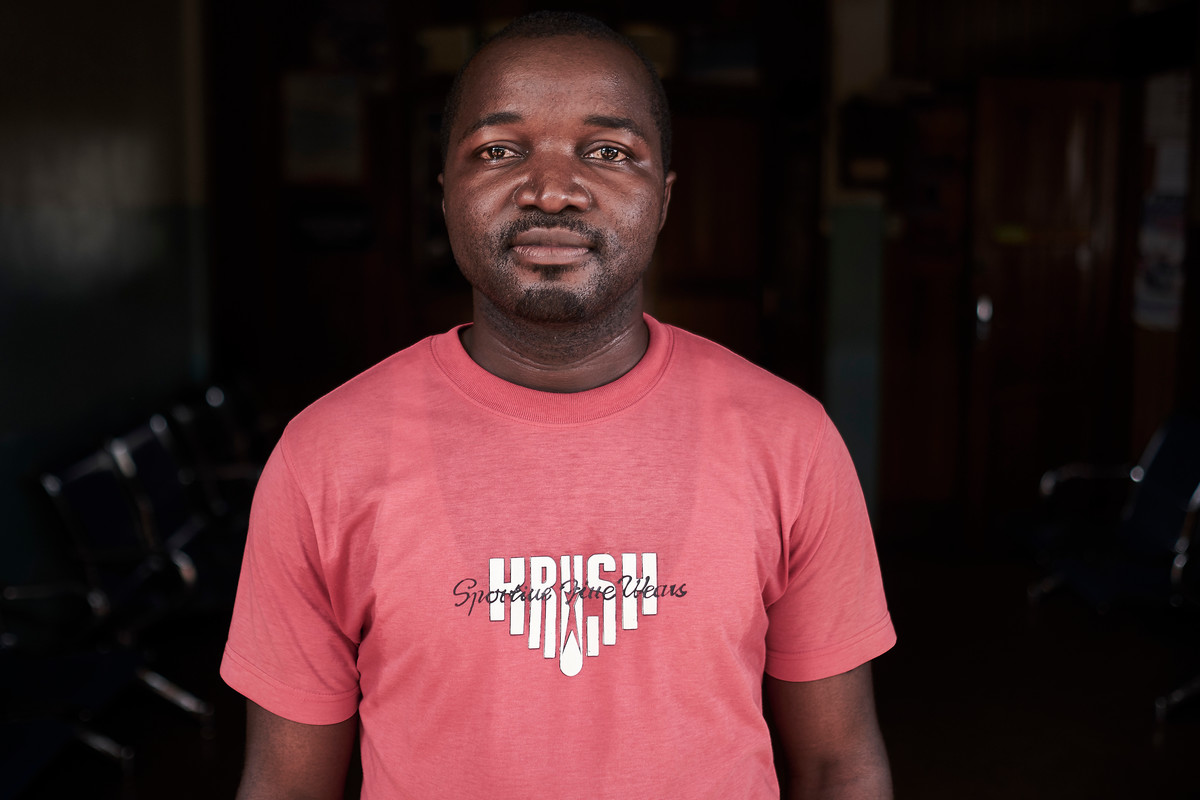
"I help to raise awareness of why we have to protect ourselves"
“The first time I met Chariette [a peer educator for the Cameroon National Planning Association for Family Welfare] was at Sunday football, around four years ago. She was invited by the organizer to come and talk to us when the match was over. We were all men but she wasn’t intimidated and she handled the stupid jokes well. We stayed in touch and then one day I realized I had an STI. It’s a little taboo and I didn’t want to talk about it. I bought some drugs at the local market but they didn’t have any effect. I called Chariette and we discussed what had happened. She told me to come to the CAMNAFAW clinic and I did, where I spoke about my problem and they gave me proper drugs to get rid of it. That day, I decided to become a peer educator myself. There are a lot of guys who are suffering but too scared to speak out. Above all, men are scared of talking about STIs. I now work in schools and youth groups, especially sports teams. They will insist they don’t have anything wrong but every Sunday since then I have gone round the teams and chatted with them. I speak about pregnancy as well. It’s the guys who push women to have sex without a condom and also to have an abortion afterwards. I help to raise awareness of why we have to protect ourselves. It’s hard to recruit people to become peer educators because we are volunteers. It’s not easy to persuade people to change their ways. The view from a lot of churches is very strict and centers on abstinence. The young men want to be macho.” Hervé Tchuigwa Djiya is a peer educator for the Cameroon National Planning Association for Family Welfare (CAMNAFAW)
Pagination
- Previous page
- Page 3
- Next page







